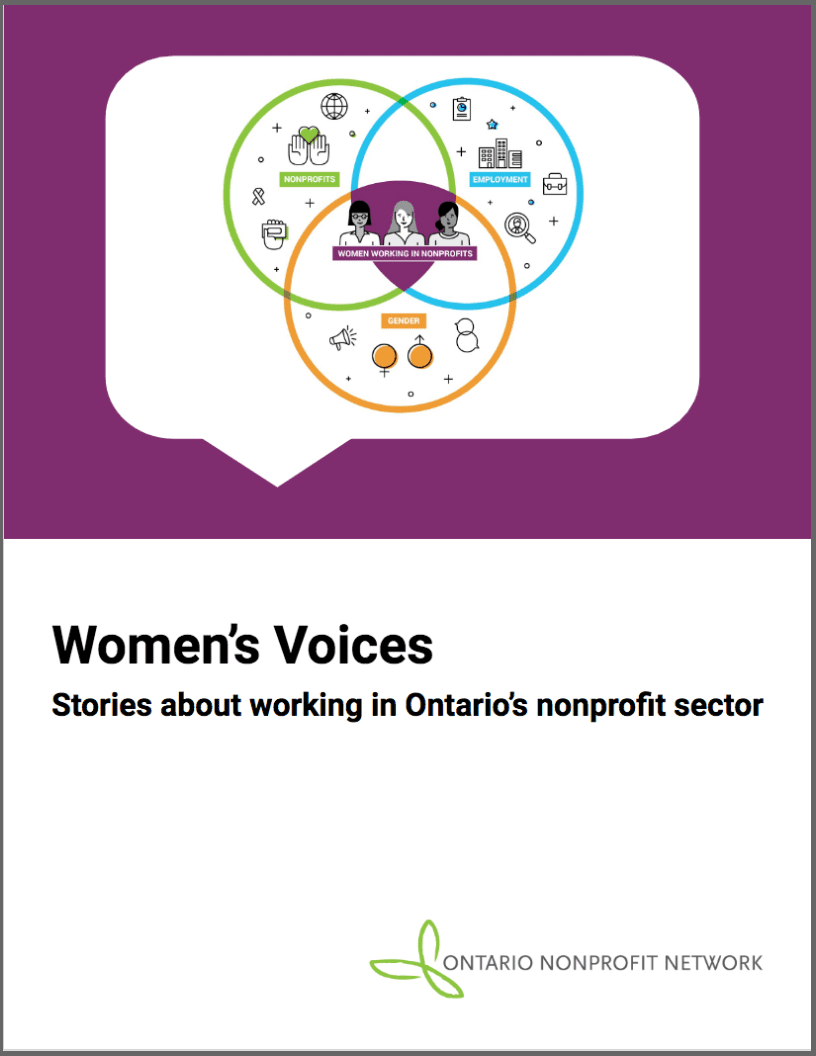Women’s voices
Stories about working in Ontario’s nonprofit sector
Challenges women face in the broader labour market manifest in the nonprofit sector too
To better understand barriers to economic empowerment faced by women working in nonprofits, ONN conducted a series of learning circles and an online survey. This report shares the voices of 730 self-identified women who participated in the research activities: their perspectives, experiences, observances, and opinions.
For the first time in Ontario and Canada, women’s experiences of working in nonprofits are documented and shared within the sector and beyond. While learning circles provided an opportunity to share experiences, it was also a space to learn from each other and connect. The survey provided space for those who couldn’t be part of the learning circles. This report was launched through the voices carry campaign which invited more women across social media to share their experiences working in nonprofits.
Key Findings
Feminization of the sector
Gender plays a significant role in the nonprofit sector labour market, resulting in a feminization of the sector. Feminization occurs in two ways: with the labour force being women-majority and with traditional stereotypes of femininity being embedded within the sector’s narrative and structures. Stereotypes include dependent, nurturing, caring, emotional, inferior to masculinity, unintelligent, unskilled, and requiring guidance and monitoring, to name a few. In other words, the sector is the way that it is because of gender, it is not a fluke. This has critical implications for all workers in the sector.
Discrimination in a feminized sector
A prevalent myth in the nonprofit sector is that because it’s women-majority and focuses on public benefit issues, discrimination and specifically sexism doesn’t exist. However, participants in both the learning circles and sector survey dispel this myth, women do experience sexism and other forms of discrimination in the sector. In short, participants are not only facing all the challenges of a feminized sector but also discrimination that occurs in the broader labour market as well.
While gender is the organizing principle of this report and the larger decent work for women movement, gender is not necessarily the main organizing principle of all women’s lives. Identities are intersectional and complex and so the experience of sexism can be compounded by other parts of a woman’s identity or women can primarily experience discrimination from one part of their identity, such as age.
Conversation to Action
Decent work for women agenda
There’s much to be done to improve the lives of women working in the sector. This requires multi-pronged approaches that takes into account opportunities at the organizational, network, and systemic levels as well as within each pillar of decent work. Moreover, approaches that take into account the diversity of the sector, in all senses of the word. What is emerging is a Decent Work for Women Agenda, co-created by women working in the sector.



